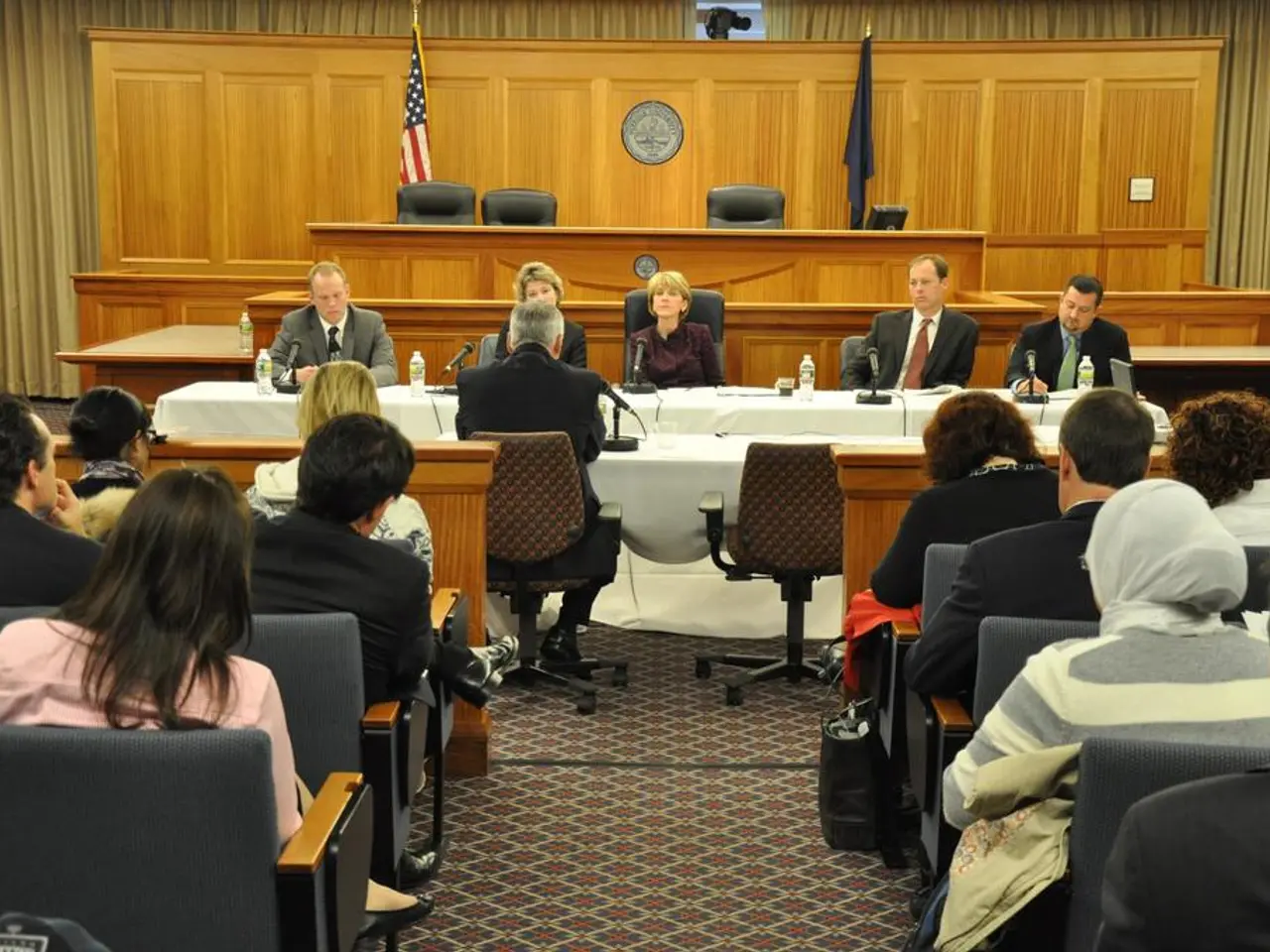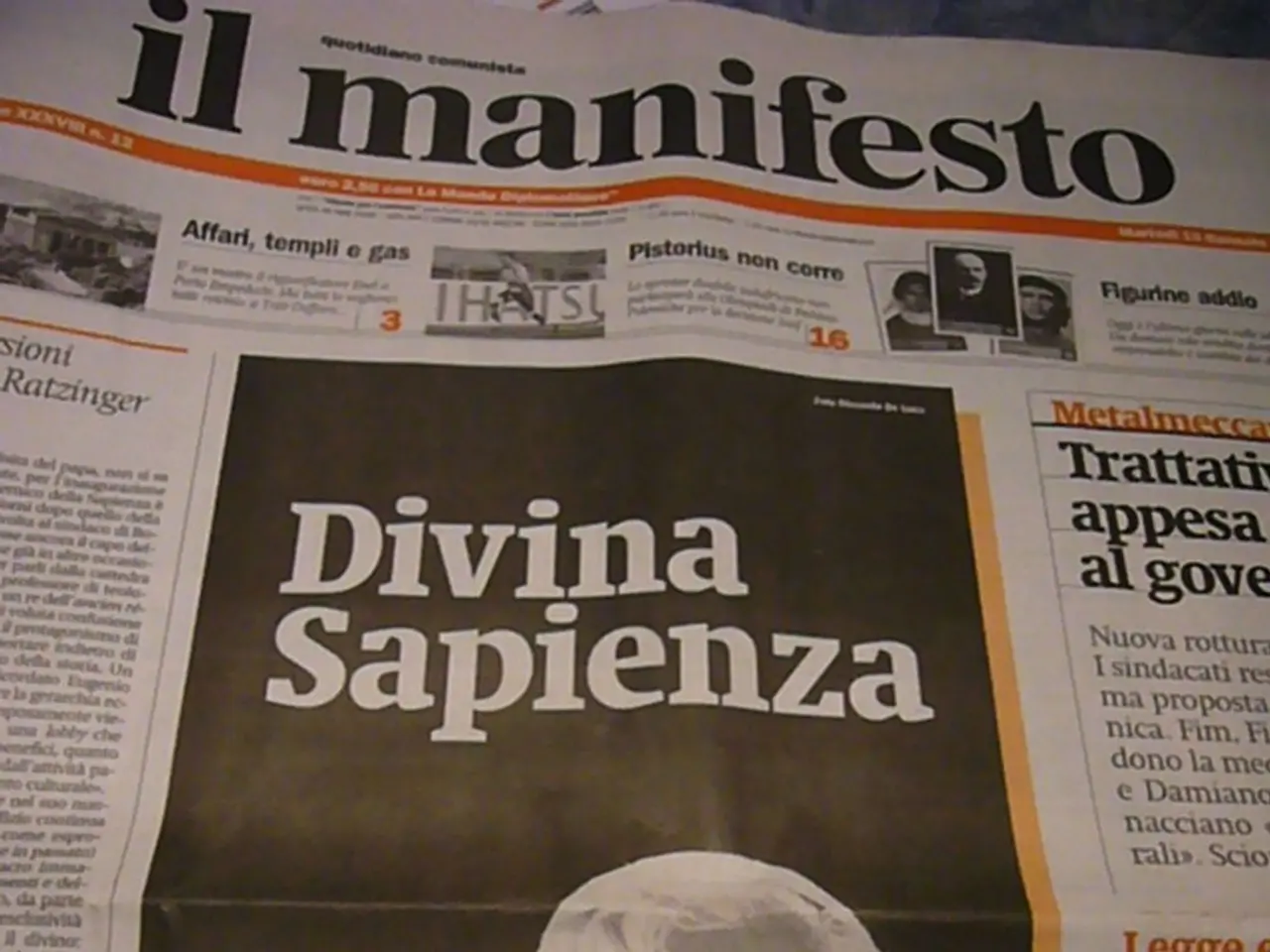Criticizing Brosius-Gersdorf's resignation, Commerçon deems it a "disappointing day for democratic culture"
Right-Wing Campaigns Disrupt German Democracy: The Case of Frauke Brosius-Gersdorf
The withdrawal of Frauke Brosius-Gersdorf as a candidate for the Federal Constitutional Court in Germany has raised concerns about the influence of right-wing online campaigns and opposition on central democratic decision-making processes.
Brosius-Gersdorf, a highly qualified candidate, faced intense opposition from the center-right CDU/CSU parliamentary group and conservative factions, including religious and pro-life groups who mobilized against her liberal stances. The distortion and defamation of Brosius-Gersdorf's work were driven by right-wing news portals and their networks.
Ulrich Commerçon, chairman of the SPD state parliament group, considers this behavior more than a political mistake, but a failure. He believes that those who allow themselves to be instrumentalized in this way do not stand on the side of the rule of law, but damage trust.
The withdrawal of Brosius-Gersdorf occurred amid intense opposition within the governing coalition (SPD-CDU/CSU), threatening the coalition’s stability. Her stepping down was aimed at avoiding a breakdown of the coalition and unforeseeable democratic consequences from escalating disputes over her appointment.
The impasse in the Bundestag over the appointments – unusually failing to elect Constitutional Court justices due to ideological conflicts – raises concerns about politicization and destabilization of judicial independence. The appointment process has lost its typical formality and become a political crisis.
Commerçon expresses concern that misinformation and political campaigns from right-wing online platforms could influence decisions of significant magnitude. He views the CDU/CSU’s actions as the real scandal, as they gave in to public pressure, despite knowing which political forces would benefit.
The case highlights how right-wing campaigns can penetrate central democratic processes, influencing high-stake decisions like Constitutional Court appointments and thereby affecting the balance between democracy, judicial independence, and political power in Germany. It reveals how judicial nominations can become politicized battlegrounds that strain democratic governance.
Some pro-family organizations argue that taking citizens' legitimate concerns seriously demonstrates functioning democratic control, while others see the withdrawal as a capitulation to far-right populism, illustrating the tension between responding to popular opinion and protecting democratic institutions from populist pressure.
In conclusion, the withdrawal of Frauke Brosius-Gersdorf as a candidate for the Federal Constitutional Court demonstrates the potential for right-wing online campaigns and opposition to significantly disrupt central democratic decision-making processes in Germany. It underscores the importance of safeguarding democratic institutions against targeted campaigns and digital misinformation to ensure the integrity of democratic processes and the rule of law.
- The controversy surrounding Frauke Brosius-Gersdorf's withdrawal as a candidate for the Federal Constitutional Court has brought policy-and-legislation issues to the forefront, particularly regarding the regulation of right-wing online campaigns and political interference in judicial appointments.
- The influence of right-wing politics and general-news portals on the German democratic system has been highlighted by the Brosius-Gersdorf case, raising concerns about the impact of digital manipulation and political pressure on central decision-making processes and the rule of law.




